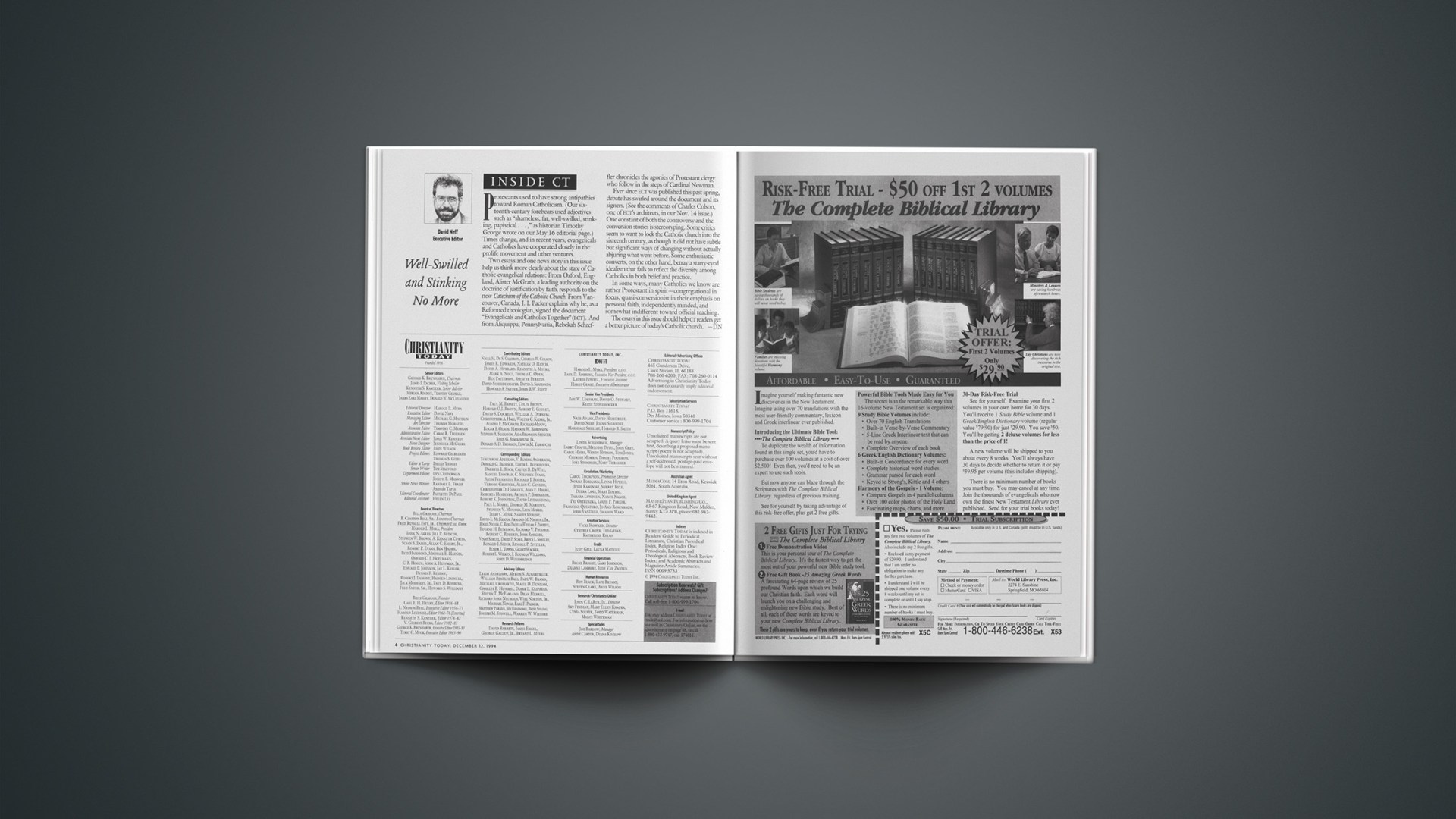Protestants used to have strong antipathies toward Roman Catholicism. (Our sixteenth-century forebears used adjectives such as “shameless, fat, well-swilled, stinking, papistical … ,” as historian Timothy George wrote on our May 16 editorial page.) Times change, and in recent years, evangelicals and Catholics have cooperated closely in the prolife movement and other ventures.
Two essays and one news story in this issue help us think more clearly about the state of Catholic-evangelical relations: From Oxford, England, Alister McGrath, a leading authority on the doctrine of justification by faith, responds to the new Catechism of the Catholic Church. From Vancouver, Canada, J. I. Packer explains why he, as a Reformed theologian, signed the document “Evangelicals and Catholics Together” (ECT). And from Aliquippa, Pennsylvania, Rebekah Schreffler chronicles the agonies of Protestant clergy who follow in the steps of Cardinal Newman.
Ever since ECT was published this past spring, debate has swirled around the document and its signers. (See the comments of Charles Colson, one of ECT’s architects, in our Nov. 14 issue.) One constant of both the controversy and the conversion stories is stereotyping. Some critics seem to want to lock the Catholic church into the sixteenth century, as though it did not have subtle but significant ways of changing without actually abjuring what went before. Some enthusiastic converts, on the other hand, betray a starry-eyed idealism that fails to reflect the diversity among Catholics in both belief and practice.
In some ways, many Catholics we know are rather Protestant in spirit – congregational in focus, quasi-conversionist in their emphasis on personal faith, independently minded, and somewhat indifferent toward official teaching.
The essays in this issue should help CT readers get a better picture of today’s Catholic church.
Copyright © 1994 Christianity Today. Click for reprint information.










